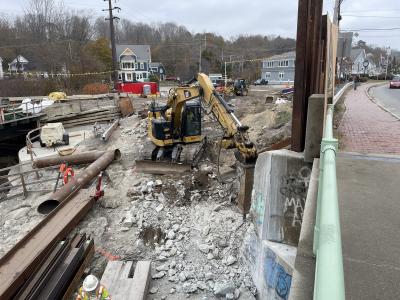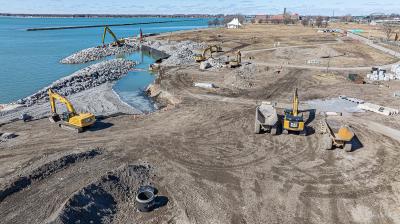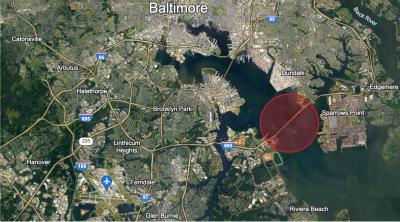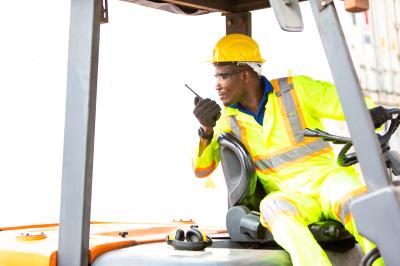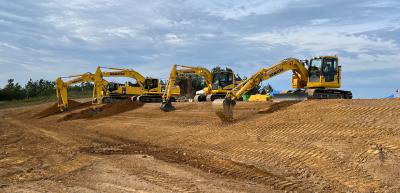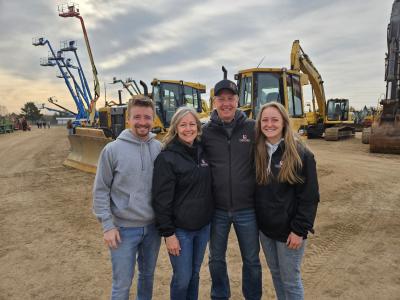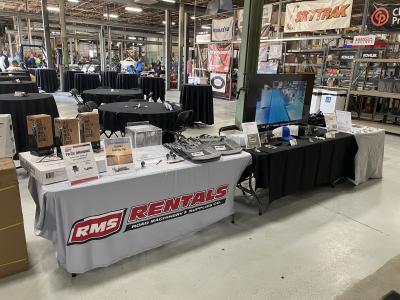Construction Equipment Guide (CEG) was recently allowed behind-the-scenes access to ALLU’s headquarters in Finland.
The five-day visit included a factory tour, demonstrations of the company’s equipment, including its line of crushing and screening equipment working on local job sites and video and PowerPoint presentations on ALLU’s soil stabilization system, a tour of Helsinki as well as a host of other activities.
“We saw this visit as a opportunity to share information about our country and our company,” said Sari Pekkala, marketing manager, ALLU Finland Ltd. “Pioneering work is always challenging and when we had the opportunity to tell more about the work we do and at the same time show our beautiful country, we decided it was worth looking into.”
ALLU may seem like a relatively new company to most people (the manufacturer changed its name officially to ALLU in 2007), but the company was founded by Markku Jonninen in 1985 and was called Ideachip Ltd. before that.
The name “ALLU” is derived from the waste-eating dinosaur “ALLOsaurus,” which fit well because ALLU’s screening and crushing buckets do the same thing as its namesake once did — help recycle and process materials.
For close to three decades, ALLU has experienced steady growth. What began in Finland has grown to offices around the world, including Germany, Sweden, France, Great Britain, United States, Argentina and China, with distribution in more than 30 countries.
“ALLU has always listened to the real needs of the clients and developed, not only products, but also working methods,” said Kauko Pylväs, managing director, ALLU Group. “For instance, screener-crusher working principle, screening and crushing simultaneously with one single unit was developed in the beginning of 1990s by ALLU. In many countries it’s called “alluizing.” Mass stabilization concept as well is a new working method and ALLU was the first one to develop equipment to perform the mass stabilizing work.
“Based on this, the markets for ALLU products are new and ALLU needs to do a lot of pioneering work in order to inform about the great possibilities of their technologies to the potential customers,” he added. “ALLU has been prepared to do this and it has ensured fast and steady annual growth. Even though some competition has appeared to the market, thanks to the continuous investments to the product and sales channel development, ALLU has been able stay as worldwide market leader of its branch.”
For most of its existence, ALLU Finland’s core business has been designing, manufacturing and selling screener crushers and other attachments for excavators and wheeled loaders. In the early 2000s, ALLU started the stabilization business, which differed greatly from the original core business. Stabilization business is based on selling new working method and machinery to a specific project.
ALLU developed the first mixer for the mass stabilization process in the middle 1990s and finished the complete system in 2003.
“Mass stabilization concept was developed already some decades ago and mainly for stabilizing soft clay-type layers approximately10 to 15 feet deep,” said Pylväs. “At that time, the major problem for performing the mixing of the binder to the soil was lack of proper mixing tool. In the beginning of 1990s, Finnish universities and research laboratories succeeded in developing a method for utilizing mass stabilization concept also to organic soil materials like peat. Once the first test results came out and after discussing with local geologists about their mixing problems, ALLU started to develop a mixing head and later on a complete equipment concept, too. Today, ALLU has a wide range of machinery for different mass stabilization applications covering even a 3D positioning System.”
In January 2014, ALLU separated its stabilization business into a new company. ALLU StaMix Ltd. ALLU Finland Ltd. continues manufacturing ALLU screener crusher products. With this separation ALLU wanted to profile the sales and manufacturing of the stabilization products clearly as its own business. Both companies are owned by ALLU concern parent company ALLU Group Ltd.
Mass stabilization is a fast and cost-effective method for hardening soft ground by adding binder into the soil, according to ALLU. Different types of clay, peat, slurry and other soft ground materials can be transformed into a solid layer by using the mass stabilization method, which also can be used for processing and encapsulating contaminated materials. The ALLU Stabilization System consists of three devices: pressure feeder, power mixing unit and control system.
This system has been in use close to home for ALLU. As freight weight on rails has been increasing in Finland, the stabilization system has proven to be a very valuable method to stabilize the land next to elevated train tracks, which extends rail life and helps keep the rail lines safe for many years to come.
Mass Stabilization also has been a huge success around the world. This process is used on a variety of projects including hardening wetlands for sports fields and residential buildings, stabilizing areas around houses to build additions, hardening areas around harbors to expand buildable space, as well as to clean and contain contaminated areas of water and marsh land.
Soil Stabilization essentially works like a blender, similar to mixing dough. The ALLU Power Mixer is moved up and down in wet areas as the control system injects materials to harden the land. The Control System is able to sense how dense the land is and informs the operator proper density has been reached and to then move on to the next block of land. The Power Mixer is fed by the Pressure Feeder, which has more then enough capacity to keep the job moving forward.
“Mass stabilization is still a fairly new working method for soil processing,” said Pylväs. “Most probably less than 10 percent of soil processing professionals in the world know about it. On the other hand, new applications appear continuously for the method and possibilities are widening. Winning land from the sea by hardening dredged sediments, strengthening soft soils for building roads, sport fields or even buildings, supporting existing rail road or dike embankments, or encapsulating contaminated soils are just a few examples of them. ALLU foresees huge growth potential for sales of its machinery on the soil stabilization market.”
For more information, visit www.allu.net/us/.
Today's top stories



